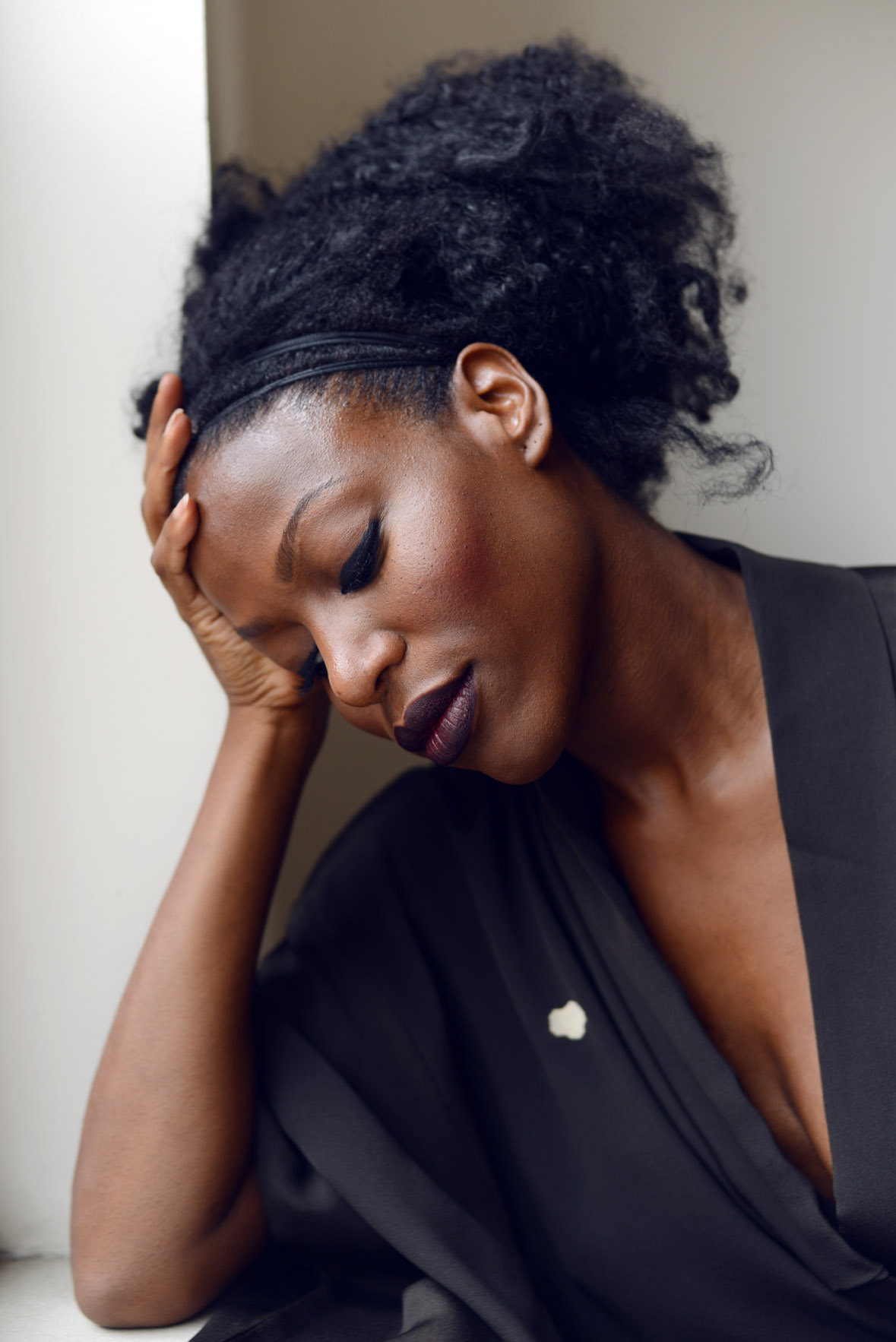Taiye Selasi is relentlessly charming. Her enthusiasm is also completely disarming. She peppers her emails from Rome to the photographer Frederic Aranda, who shot her in New York, with Italian words and exclamations, signing off ‘Abbracci forti’ (‘Strong hugs’). It would seem over the top if it didn’t also come across as genuinely affectionate. The same warmth and humanity shine in her essays, short stories and novels.
Selasi’s literary career seemed blessed from the start. Born in London to a Ghanaian mother and father, she moved to Brookline, Massachusetts at the age of eight. She was educated at Yale then studied at Oxford. She had just produced a play at Oxford and, while sitting next to the director’s aunt, who happened to be Toni Morrison, at dinner, confessed she really wanted to start writing again. Morrison gave her a deadline.
A year later, the resulting short story, The Sex Lives of African Girls, was published in Granta, and, before she had even finished her first novel, she had Andrew Wylie as her agent and a two-book deal with Penguin Press.
But auspicious beginnings are no guarantee against writer’s block. Stalling, Selasi abandoned her comfortable job in New York to go abroad and concentrate on writing. The resulting novel, Ghana Must Go, was sincere and brave. Her latest short story, Driver, was shortlisted for the Sunday Times EFG Short Story Award. Her next novel will be set in Rome. She’s already moved on to Berlin. We asked the writer about her background and how it has informed her present.
Her answers shine with grace, wit, optimism and conviction.
Where does your name come from?
Taiye is a Yoruba name given to the firstborn of twins. My mum is Yoruba, and incredibly proud of being an iya-ibeji, a mother of twins. My father is Ewe, born and raised in Ghana. Selasi means ‘God has heard’ or ‘answered prayer’ in Ewe.
Tell us about how you experienced Africa as a child.
I didn’t. No one can ‘experience’ Africa, except as an abstraction. The continent is made up of 55 countries and countless beautifully diverse cultures. One can’t experience Africa. But I did visit several wonderful countries as a child. My godmother lived in Tanzania, so we spent three months in Dar es Salaam. I absolutely loved it – but returned to the States thinking chana masala and aloo ghobi were Tanzanian foods. It was only later that I came to understand the historical role Indian culture (and food) has played in east Africa.
The Ghana that I went to for Christmas last year no longer exists: Chinese investors have transformed the capital, inflated the local economy.
When we were eight, we spent the summer with my mum’s family in Abeokuta, the Nigerian hometown of Fela Kuti. It was a magical summer: swimming in lakes, eating mangoes, climbing Olumo Rock. For me, these places weren’t ‘Africa’; they were my family’s hometowns. They were home. And so I experienced them as a child experiences home: with curiosity, recklessness, tenderness.
How does it feel coming back to Ghana as an adult?
You know, it’s funny. I’m often asked what it’s like to go back, or if I wish to ‘go back’ to Ghana. I go to Ghana once a year to visit my mother, as one does. But I can’t go back to Ghana. How does one go back to a place? It’s not that I wasn’t born in Ghana. My father, who was, can’t go back either: the Ghana in which he was born no longer exists. The Ghana that I went to for Christmas last year no longer exists: Chinese investors have transformed the capital, inflated the local economy.
Both Nigeria and Ghana are in dire need of female leadership. Perhaps even more than a female president, we need a young one: a leader born after 1957.
The America in which I spent my childhood – a land of Nintendo and Oregon Trail – no longer exists. We can never go back to a place and find it where we left it. Something, somewhere, will always have changed: most of all ourselves.
In 2005 you wrote an essay for LIP magazine that struck a chord with a generation. How do you feel the notion of Afropolitans has changed since you coined it? How will it continue to change?
I wrote Bye-Bye Babar in 2005 to describe a particular experience. I was interested in how that experience might be said to yield a particular identity, a whole greater than the sum of its African and cosmopolitan parts. I was delighted in the years that followed to find that so many others shared this experience – but never expected universal agreement. I’m a writer, not a sociologist. I describe what I see.
The true joy for me lies in description, which makes possible recognition on the part of the reader. The experience I describe in the essay hasn’t changed at all: it’s still my experience, my cousins’ experience, many readers’ experience. But the word has come unhooked from the essay, and that’s okay. As writers, we are obliged to let our words go, to let them fare for themselves in the world. All we can ask of ourselves is that our words ring true. For me, nearly 10 years on, they do.
Your female characters are usually intelligent and strong, if fragile. Do you think it’s likely Nigeria or Ghana will have a female president?
I desperately hope so. Both Nigeria and Ghana are in dire need of female leadership. One of my mum’s closest friends – I call her Auntie Ngozi – has been doing her utmost to introduce a culture of accountability into Nigerian politics. But Ngozi Okonjo-Iweala can’t do it alone.
Perhaps even more than a female president, we need a young one: a leader born after 1957, that is, born into the era of African political autonomy. This is my dream: a female Ghanaian president born after 1957. And, if you ask me quietly, I think I know just the woman [laughing].
There’s a lot going on in Berlin these days. What are you up to professionally, socially and creatively?
Too much! It’s often said that Berlin these days is like New York in the 80s. I suspect there’s some truth to that, although the party ship may have already sailed. Globalisation, in all its dubious glory, has created a young creative class that recognises itself wherever it lands—and many have landed here. These are the good-doing, quinoa-eating, yoga-practicing Peter and Petra Pans of the world. For so many reasons—it’s green! it’s cheap! it’s ‘chill!’—Berlin appeals to this tribe.
I’ve been so inspired by the city, by the inspiration of its citizens. I’m working on a documentary about global refugees, a podcast about creative African women, a second novel, a TV series. Too much. Much too much. Above all, I think I’m preparing myself. For what, I don’t yet know.
Keep up to date with taiyeselasi.com




